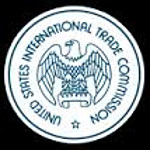 Practical Law will present a webinar discussing best practices for Section 337 patent litigation and current hot topics at the International Trade Commission (ITC), such as standard essential patents and the Commission’s jurisdiction over electronic data importations.
Practical Law will present a webinar discussing best practices for Section 337 patent litigation and current hot topics at the International Trade Commission (ITC), such as standard essential patents and the Commission’s jurisdiction over electronic data importations.
The 75-minute event will be Tuesday, May 10, 1-2:25 p.m. EDT.
Commencing a patent infringement investigation at the International ITC under Section 337 of the Tariff Act of 1930 is a powerful weapon in a patent owner’s arsenal, Practical Law says on its website. Section 337 patent infringement investigations offer several advantages over patent litigation in federal district court, including swift resolution of disputes and broad availability of injunctive relief. However, Section 337 investigations also have potential risks, including substantial litigation costs and discovery requirements.
The webinar will feature (i) Charles Schill, a partner at Steptoe & Johnson LLP who has handled more than 130 unfair trade practice Section 337 investigations, and (ii) former ITC Administrative Law Judge Robert Rogers, who held 20 hearings during his tenure resulting in 17 Final Initial Decisions.
A short Q&A session will follow.
Presenters:
Charles F. Schill, Partner, Steptoe & Johnson: Charles focuses his practice on the intersection of international trade and intellectual property law. He has handled more than 130 unfair trade practice cases under Section 337 of the Tariff Act at the ITC, and has won or favorably settled almost all of them. He previously served as a Senior Staff Attorney in the Office of Legal Services and the Office of General Counsel at the ITC.
Robert K. Rogers, Jr., Attorney at Law: An attorney for 39 years, Mr. Rogers was an Administrative Law Judge for 19 years, including 5 years as an ALJ at the U.S. International Trade Commission. He was assigned more than 55 cases, held 20 hearings, issued 17 Final Initial Decisions, 2 TEO Decisions, and concluded one case by summary determination. Mr. Rogers has extensive experience in litigation related to patents and trade secrets, and his experience spans a breadth of industries, issues, and forums, which provides him the ability to effectively assist litigants in reaching settlement of patent and trade secret matters.
Register for the webinar.





 Kevin Perry and Joanne Elieli of of
Kevin Perry and Joanne Elieli of of  Practical Law
Practical Law